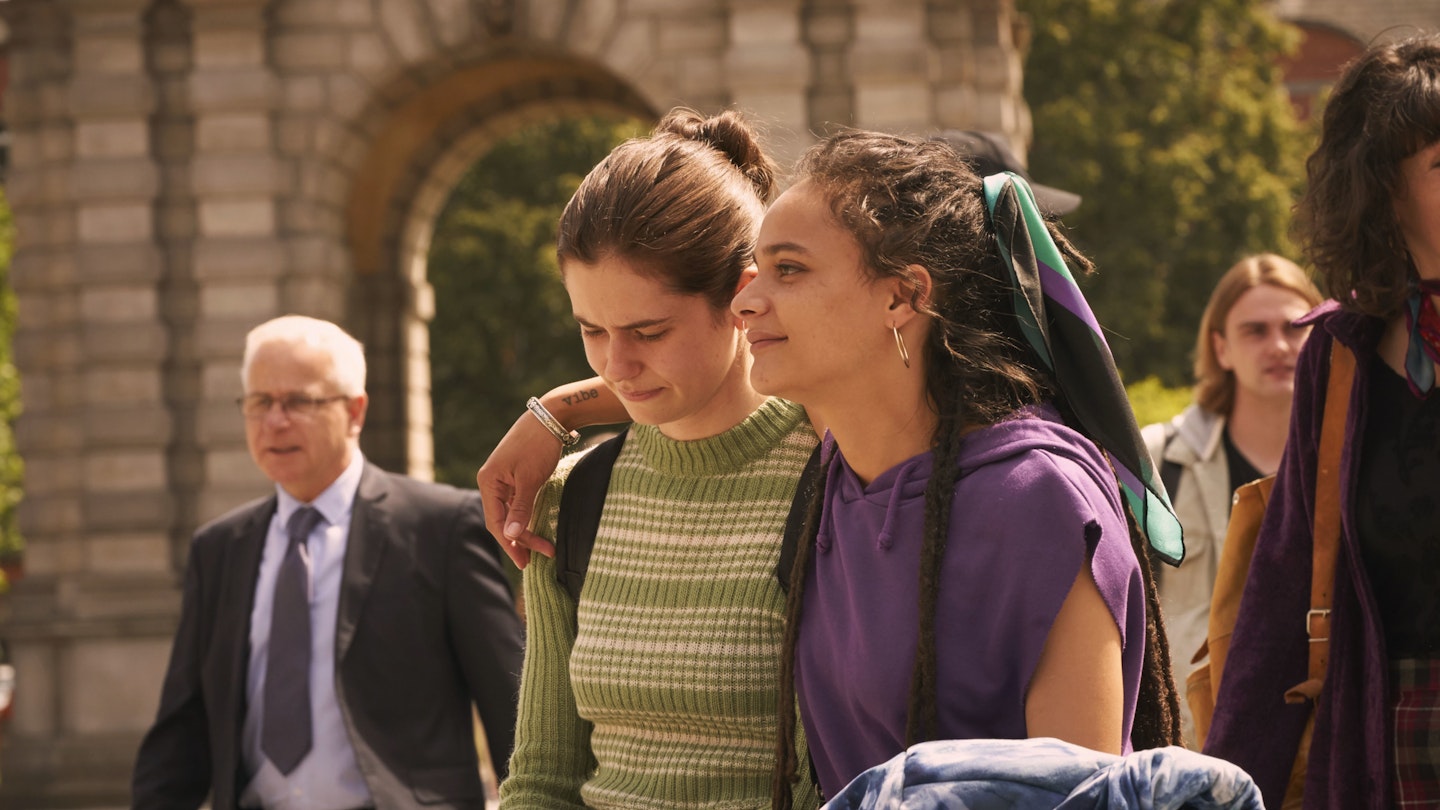When Sally Rooney published her debut novel, Conversations With Friends, in 2017 it established her as Jane Austen for Millennials – Rooney’s concise dialogue slicing straight through the emotional complexity of courtship and identity. The following year she published Normal People (one million copies sold to date) and then came the BBC adaptation: a genuine phenomenon that made global superstars of its sizzling hot lead actors, Paul Mescal and Daisy Edgar-Jones, and provided the most effective balm for the first lockdown.
Like Normal People, Conversation With Friends explores what happens when love collides with shy ambition. Two postgraduate friends and former lovers – bolshy, precocious Bobbi and shy, plain Frances – become embroiled with an older, married middle-class couple, Nick and Melissa.
Laying out the hopes, fears and affairs of Generation Anxiety, the book is a masterpiece. But, with a new BBC adaptation, has Sally Rooney TV lightning struck twice? Yes and no. Conversations With Friends is arguably the better book than Normal People. But it’s a trickier tale to translate to TV. While it’s filmed with the same softly wistful feel as Normal People – by the same director, Lenny Abrahamson – and with a similar show-don’t-tell skill for narrative, there’s no getting away from the fact that Nick (Joe Alwyn) and Melissa (Jemima Kirke) are a ghastly couple. Bobbi (Sasha Lane) and Frances (newcomer Alison Oliver) aren’t the easiest to warm to either, to be honest.

When the four start hanging out, and two of them begin the illicit affair that will prove their unravelling, it’s all poetry slams, stolen glances behind Crittal windows and wistful acoustic music in Sunday supplement holiday homes. There is some sex, but not nearly as much as Normal People and it is most certainly not a sexy show. Joe ‘Mr Taylor Swift’ Alwyn as Nick is far more self-conscious with his body than Mescal was as Connell. There will be no Instagram accounts dedicated to his wardrobe. (But this is entirely fitting.)
Yet, two or three episodes into Conversations With Friends it becomes apparent that what seemed like weaknesses turn magically into the show’s strengths. Rooney is such an interior writer, so obsessively detailed over the minutiae of the mistakes people make and why they make them. You don’t need to like, or lust after, these characters to be fascinated by them. It is mainly from Frances’ perspective and Oliver’s performance is flawless: you can understand exactly why a vain, damaged older man is catnip to her character.
By midway through the 12-part series, Conversations With Friends turns into every bit the equal, if not even the better screen experience than Normal People. It luxuriates in Rooney’s hard wisdom, her sterling authorial control at not judging what her characters do, just explaining in forensic detail why they do it. One more in the bag, and her immaculate, amazing screen universe will be complete.
